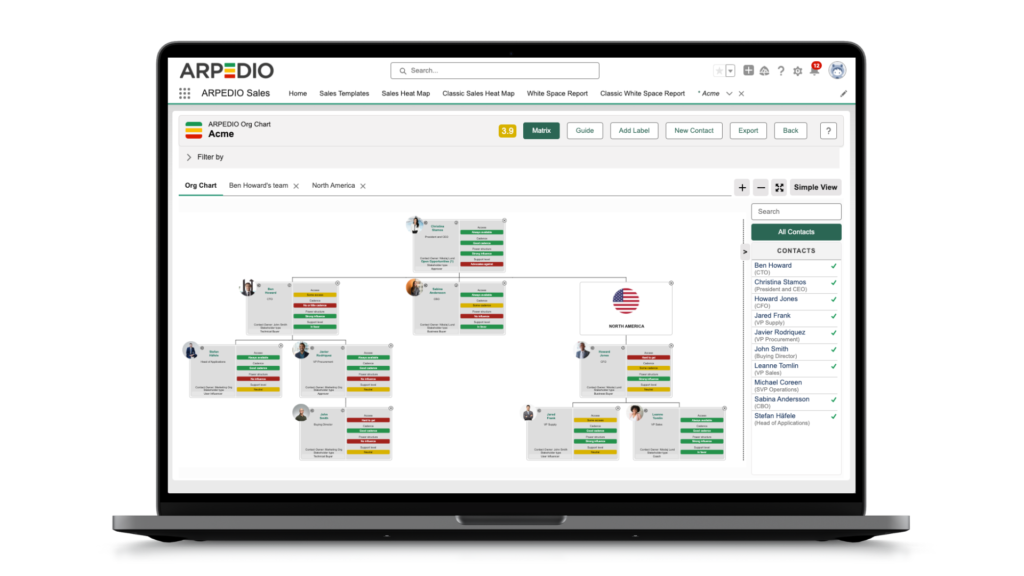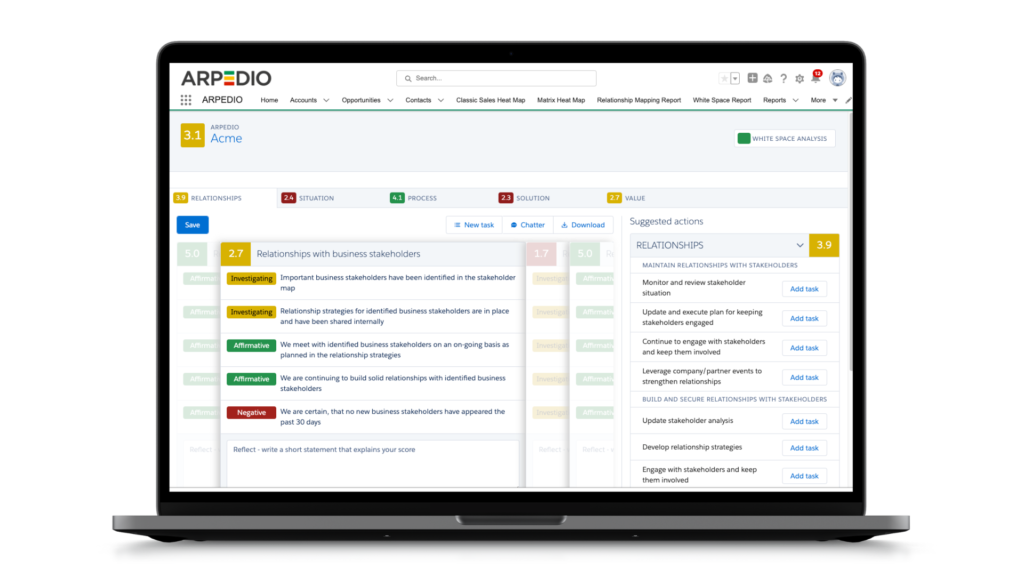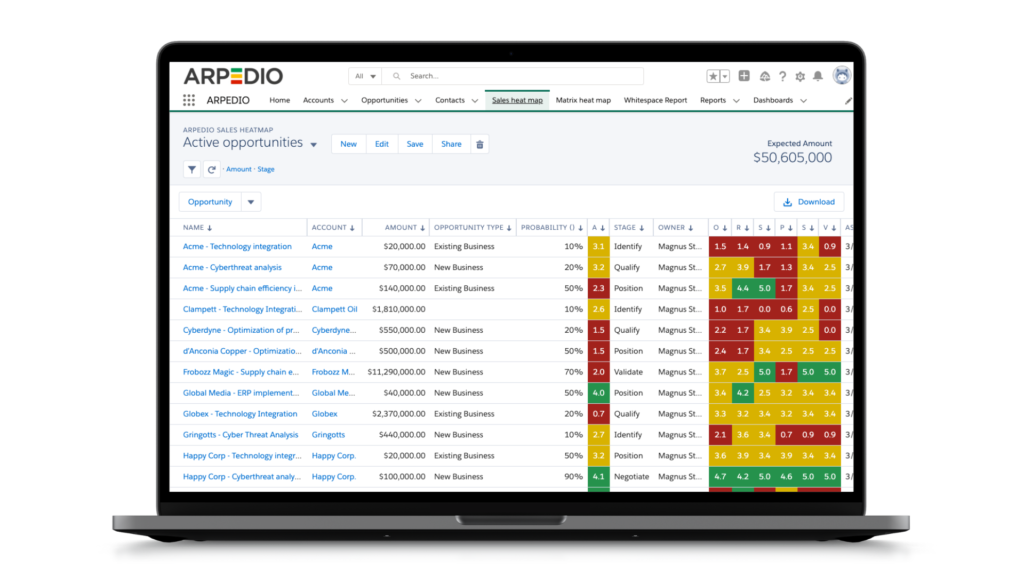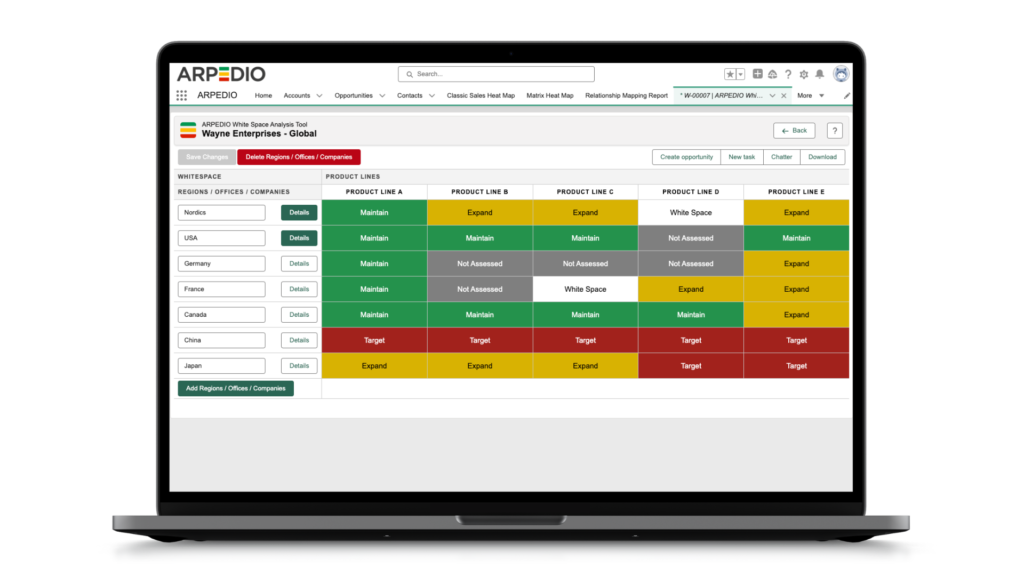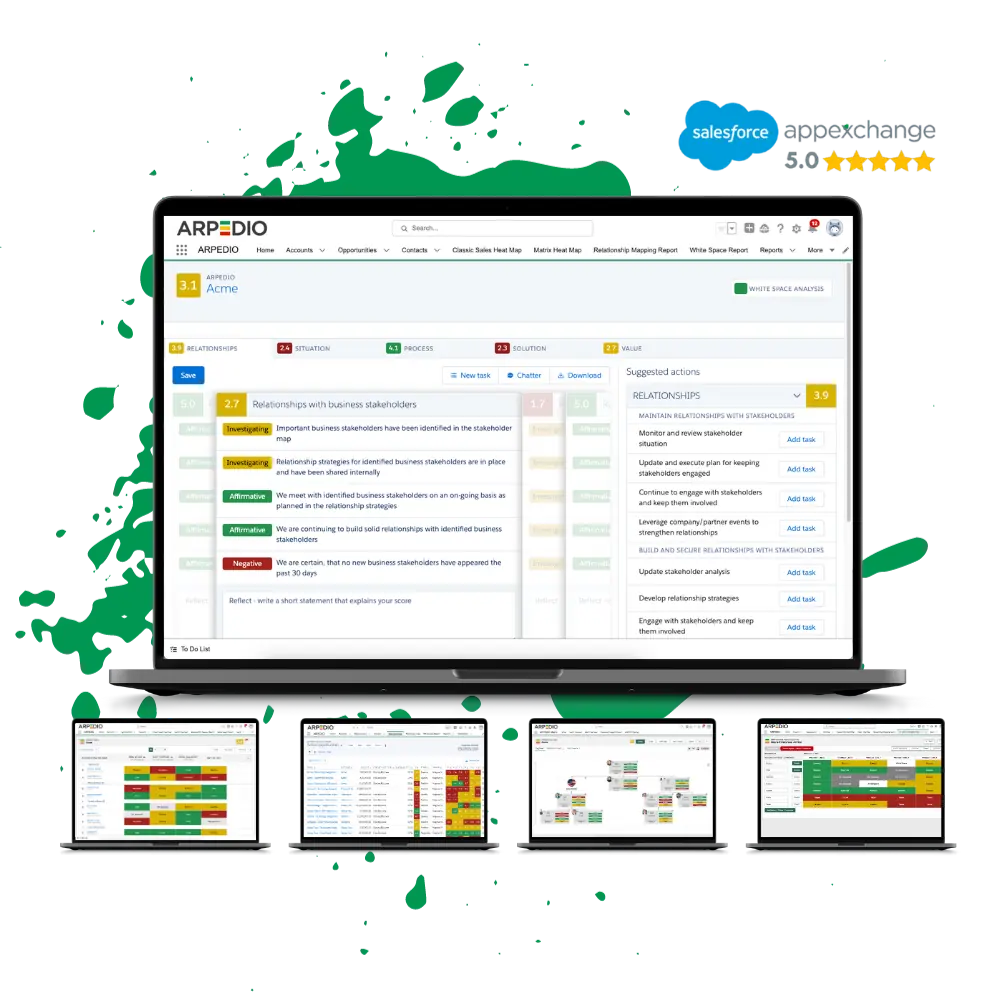In today’s fast-paced and competitive business environment, staying ahead of the curve requires embracing innovative technologies that enhance efficiency, productivity, and customer engagement. One such technology that has revolutionized sales practices is Artificial Intelligence (AI). AI in sales refers to the application of advanced algorithms and machine learning techniques to streamline sales processes, gain actionable insights, and deliver personalized experiences to customers and prospects.
This blog post explores the role of AI in sales and its significance in modern business practices. We’ll delve into the definition of AI in sales, highlighting its key capabilities and applications. Additionally, we’ll discuss the importance of integrating AI into sales practices and the benefits it offers to organizations striving for success in today’s data-driven marketplace.
By understanding the potential of AI in sales and its impact on business operations, sales professionals can harness the power of technology to drive revenue growth, improve customer relationships, and gain a competitive edge. Join us as we explore how AI is transforming sales strategies and shaping the future of business.
What is AI for Sales?
Artificial Intelligence (AI) in sales refers to the application of advanced technologies, algorithms, and machine learning techniques to streamline and optimize various aspects of the sales process. AI-powered tools and systems enable sales teams to analyze data, predict outcomes, automate tasks, and personalize interactions with customers and prospects.
Importance of AI Integration in Sales Practices
Integrating AI into sales practices is crucial for businesses looking to stay competitive in today’s dynamic and data-driven marketplace. Here’s why AI integration is important in sales:
Enhanced Efficiency: AI technologies automate repetitive tasks, such as data entry, lead scoring, and email outreach, allowing sales teams to focus their time and energy on high-value activities, such as building relationships and closing deals. By streamlining workflows and reducing manual effort, AI improves sales efficiency and productivity.
Data-Driven Insights: AI algorithms analyze vast amounts of data to uncover patterns, trends, and correlations that human analysts may overlook. By harnessing the power of predictive analytics and machine learning, sales professionals gain valuable insights into customer behavior, preferences, and buying signals, enabling them to make informed decisions and tailor their strategies for success.
Personalized Interactions: AI enables personalized and contextual interactions with customers and prospects across various channels, such as email, social media, and chat. By leveraging data on individual preferences, purchase history, and communication preferences, sales teams can deliver targeted messages, recommendations, and offers that resonate with each customer, driving engagement and conversion rates.
Improved Sales Forecasting: AI-powered sales forecasting tools use historical data, market trends, and predictive models to forecast future sales performance accurately. By providing accurate and timely insights into sales pipelines, conversion rates, and revenue projections, AI helps sales leaders make strategic decisions, allocate resources effectively, and achieve sales targets more consistently.
Competitive Advantage: Businesses that embrace AI in sales gain a competitive edge by leveraging technology to optimize their processes, deliver superior customer experiences, and outperform competitors. By staying ahead of the curve and embracing innovation, organizations can differentiate themselves in the marketplace and position themselves for long-term success.
In summary, integrating AI into sales practices offers numerous benefits, including enhanced efficiency, data-driven insights, personalized interactions, improved sales forecasting, and a competitive advantage. By harnessing the power of AI technologies, sales teams can unlock new opportunities, drive revenue growth, and deliver exceptional value to customers in today’s rapidly evolving business landscape.
Understanding AI in Sales and Its Impact on Revenue Generation
In today’s rapidly evolving business landscape, leveraging advanced technologies is essential for staying competitive and driving growth. One such technology that has transformed sales practices is Artificial Intelligence (AI). AI algorithms and applications have revolutionized the way sales teams engage with customers, predict trends, and optimize processes. In this section, we will delve into the role of AI in sales, exploring its capabilities, applications, and impact on modern sales practices. By understanding AI in sales, businesses can unlock new opportunities, improve efficiency, and deliver exceptional experiences to customers and prospects.
AI sales solutions have the potential to revolutionize the way businesses generate revenue. By leveraging the power of sales intelligence and AI-powered technologies, sales teams can take their performance to the next level.
Sales intelligence involves the use of data and analytics to gain insights into customer behavior, market trends, and competitor activity. This information can then be used to optimize sales strategies and close more deals.
AI-powered sales solutions take this to the next level by automating repetitive tasks, analyzing large volumes of data, and making accurate predictions based on historical trends and patterns.
Implementing AI-powered sales solutions can have a significant impact on revenue growth, enabling businesses to identify new opportunities, develop more effective pricing strategies, and improve forecasting accuracy.
Whether you’re a small business or a large enterprise, understanding AI sales and its potential impact on revenue generation is crucial. By leveraging the power of AI-powered sales solutions, sales teams can streamline their processes, make more informed decisions, and ultimately drive revenue growth.
Overview of Artificial Intelligence
Artificial Intelligence (AI) is a branch of computer science that focuses on the development of intelligent machines capable of performing tasks that typically require human intelligence. In the context of sales, AI algorithms and technologies aim to mimic human cognitive functions, such as learning, reasoning, and problem-solving, to optimize sales processes and outcomes.
AI in sales encompasses a range of techniques and applications, including machine learning, natural language processing (NLP), predictive analytics, and robotic process automation (RPA). These AI technologies analyze data, extract insights, automate tasks, and personalize interactions with customers and prospects, revolutionizing traditional sales practices and driving efficiency and effectiveness.
Role of AI in Sales Processes
AI plays a crucial role in various stages of the sales process, from lead generation and qualification to closing deals and customer retention. Here’s how AI enhances sales processes:
Lead Generation and Qualification: AI-powered tools analyze data from various sources, such as website visits, social media interactions, and email inquiries, to identify and prioritize potential leads. By leveraging predictive analytics and lead scoring models, sales teams can focus their efforts on high-quality leads with the highest likelihood of conversion.
Personalized Customer Interactions: AI enables personalized and contextual interactions with customers and prospects across multiple channels, including email, chat, and social media. Natural language processing (NLP) algorithms analyze customer inquiries and responses, allowing sales professionals to deliver tailored recommendations, offers, and support in real-time.
Sales Forecasting and Predictive Analytics: AI-powered sales forecasting tools use historical data, market trends, and predictive models to forecast future sales performance accurately. By analyzing patterns and correlations in data, AI helps sales leaders make informed decisions, allocate resources effectively, and optimize sales strategies to achieve targets and objectives.
Chatbots and Virtual Assistants: AI-driven chatbots and virtual assistants automate customer support and engagement, answering frequently asked questions, scheduling appointments, and providing relevant information to customers 24/7. By leveraging natural language understanding and machine learning capabilities, chatbots enhance customer experiences and free up sales teams to focus on more complex tasks.
Types of AI Applications in Sales
AI applications in sales span a wide range of functionalities and use cases, including:
Predictive Analytics: Predictive analytics algorithms analyze historical data to forecast future outcomes, such as customer behavior, sales trends, and market demand. By identifying patterns and trends in data, predictive analytics help sales teams anticipate customer needs, identify potential opportunities, and mitigate risks more effectively.
Chatbots and Virtual Assistants: AI-powered chatbots and virtual assistants automate customer interactions, providing instant support and assistance to customers and prospects. Chatbots use natural language processing (NLP) to understand and respond to inquiries, delivering personalized recommendations, answering questions, and guiding users through the sales process.
Sales Forecasting: AI-driven sales forecasting tools leverage machine learning algorithms to predict future sales performance based on historical data, market trends, and external factors. By providing accurate and timely forecasts, sales teams can make data-driven decisions, allocate resources effectively, and optimize sales strategies to achieve targets and objectives.
Sales Enablement: AI-powered sales enablement platforms help sales professionals access relevant content, insights, and resources to engage with customers more effectively. These platforms leverage AI algorithms to analyze customer data, personalize content recommendations, and provide real-time guidance and coaching to sales teams.
In summary, AI is transforming sales processes and practices by enabling data-driven insights, personalized interactions, and automation of routine tasks. By leveraging AI technologies such as predictive analytics, chatbots, and sales forecasting, organizations can enhance sales performance, improve customer experiences, and gain a competitive edge in today’s digital marketplace.
Benefits of AI Adoption in Sales
The integration of Artificial Intelligence (AI) into sales processes offers a multitude of benefits for businesses aiming to streamline operations, boost productivity, and drive revenue growth. In this section, we will explore the significant advantages of adopting AI in sales practices. From enhancing lead generation and qualification to enabling personalized customer interactions and automating routine tasks, AI empowers sales teams to achieve greater efficiency, effectiveness, and success. Additionally, AI facilitates data-driven decision-making, providing valuable insights and foresight to inform strategic initiatives and drive business outcomes. Let’s delve into each of these benefits in detail:
Enhanced Lead Generation and Qualification
AI-powered lead generation and qualification tools analyze vast amounts of data to identify potential prospects, prioritize leads, and predict buying behavior. By leveraging advanced algorithms and machine learning techniques, sales teams can focus their efforts on high-quality leads with the highest likelihood of conversion, thereby improving efficiency and increasing sales effectiveness.
Improved Sales Forecasting and Predictive Analytics
AI-driven sales forecasting and predictive analytics tools utilize historical data, market trends, and predictive models to forecast future sales performance accurately. By providing actionable insights into sales pipelines, conversion rates, and revenue projections, AI empowers sales leaders to make informed decisions, allocate resources effectively, and optimize sales strategies for success.
Personalized Customer Interactions
AI enables personalized and contextual interactions with customers and prospects across multiple channels, including email, chat, and social media. By analyzing customer data and preferences, AI algorithms deliver targeted messages, recommendations, and offers that resonate with each individual, enhancing engagement, satisfaction, and loyalty.
Automation of Routine Tasks and Workflows
AI automates repetitive tasks and workflows, such as data entry, lead nurturing, and follow-up communications, freeing up sales professionals to focus on high-value activities, such as building relationships and closing deals. By streamlining processes and reducing manual effort, AI enhances productivity, accelerates sales cycles, and improves overall efficiency.
Data-Driven Decision Making
AI facilitates data-driven decision-making by analyzing large volumes of data, uncovering patterns, trends, and correlations, and providing actionable insights to inform strategic initiatives and business decisions. By harnessing the power of data, AI empowers sales teams to identify opportunities, mitigate risks, and drive growth with confidence.
In summary, the adoption of AI in sales offers a wide range of benefits, including enhanced lead generation, improved forecasting, personalized customer interactions, automation of routine tasks, and data-driven decision-making. By embracing AI technologies, businesses can gain a competitive edge, optimize sales performance, and deliver exceptional value to customers in today’s digital marketplace.
Key AI Technologies for Sales
AI technologies have become integral tools for enhancing sales processes, enabling automation, personalization, and data-driven decision-making. Let’s explore some key AI technologies for sales:
Sales Enablement Platforms
Sales enablement platforms empower sales professionals with the tools, resources, and insights they need to engage with customers effectively and drive revenue growth. ARPEDIO’s Sales Enablement Platform offers a comprehensive suite of features, including account management and planning, opportunity and pipeline management, relationship mapping, org charts, and white space analysis, to support sales teams throughout the sales cycle. ARPEDIO’s Sales Enablement Platform enables sales professionals to deliver value-added experiences, build trust with customers, and close deals more efficiently.
CRM Systems with AI Integration
CRM systems with AI integration enhance sales productivity, efficiency, and effectiveness by leveraging AI algorithms to automate tasks, personalize interactions, and analyze data. ARPEDIO’s CRM Integration solution seamlessly integrates with Salesforce to enhance their capabilities with AI-driven insights and functionalities. By enriching CRM data, providing predictive analytics, and automating sales processes, ARPEDIO’s CRM Integration solution empowers sales teams to drive better outcomes, improve customer relationships, and achieve sales objectives more effectively.
Overcoming Challenges in Implementing AI in Sales
While the adoption of AI in sales offers significant benefits, businesses may encounter various challenges during the implementation process. In this section, we will explore some common challenges and provide strategies for overcoming them. From addressing data quality and integration issues to ensuring adoption and training of AI technologies, as well as navigating ethical and privacy considerations, overcoming these challenges is crucial for successful AI implementation in sales.
Data Quality and Integration Issues
One of the primary challenges in implementing AI in sales is ensuring data quality and integration across disparate systems and sources. Poor data quality, incomplete or inaccurate data, and siloed data sources can hinder the effectiveness of AI algorithms and compromise the reliability of insights generated. To overcome this challenge, businesses must prioritize data governance, establish data standards and protocols, and invest in data quality management tools and practices. Additionally, integrating AI solutions with existing systems, such as CRM platforms and marketing automation tools, is essential for seamless data exchange and interoperability.
Adoption and Training Concerns
Another challenge in implementing AI in sales is ensuring adoption and training of AI technologies among sales teams. Resistance to change, lack of familiarity with AI tools, and apprehension about job displacement are common barriers to adoption. To address these concerns, businesses must invest in comprehensive training and education programs to familiarize sales professionals with AI technologies, their benefits, and how to use them effectively. Providing ongoing support, resources, and incentives for adoption can help mitigate resistance and encourage adoption among sales teams.
Ethical and Privacy Considerations
Ethical and privacy considerations are paramount when implementing AI in sales, particularly concerning the use of customer data and AI-driven decision-making. Businesses must ensure compliance with data protection regulations, such as GDPR and CCPA, and prioritize data privacy and security throughout the AI lifecycle. Transparency in AI algorithms and decision-making processes, as well as obtaining explicit consent from customers for data usage, are essential for building trust and maintaining ethical standards. Additionally, businesses must monitor AI systems for bias, discrimination, and unintended consequences, taking proactive steps to mitigate risks and ensure fairness and accountability in AI-driven sales practices.
In summary, overcoming challenges in implementing AI in sales requires addressing data quality and integration issues, ensuring adoption and training of AI technologies among sales teams, and navigating ethical and privacy considerations. By addressing these challenges proactively and implementing best practices, businesses can harness the full potential of AI to drive sales performance, enhance customer experiences, and achieve sustainable growth.
Best Practices for Leveraging AI in Sales
To maximize the benefits of AI in sales and ensure successful implementation, businesses must adopt best practices that align with their objectives and priorities. In this section, we will explore key best practices for leveraging AI in sales, including aligning AI strategy with business goals, investing in data quality and governance, providing ongoing training and support, and monitoring performance to iterate strategies. By following these best practices, businesses can optimize their use of AI technologies, drive sales effectiveness, and achieve sustainable growth.
Aligning AI Strategy with Business Goals
A crucial best practice for leveraging AI in sales is to align AI strategy with overarching business goals and objectives. Before implementing AI technologies, businesses must define clear goals and desired outcomes, such as increasing revenue, improving customer satisfaction, or enhancing operational efficiency. By aligning AI initiatives with strategic priorities, businesses can ensure that AI investments deliver measurable value and contribute to long-term success.
Investing in Data Quality and Governance
Data quality and governance are fundamental aspects of successful AI implementation in sales. Businesses must invest in processes, tools, and resources to ensure the accuracy, completeness, and reliability of data used by AI algorithms. Establishing data governance frameworks, implementing data quality management practices, and leveraging data validation and cleansing tools are essential for maintaining data integrity and consistency. By prioritizing data quality and governance, businesses can enhance the effectiveness and reliability of AI-driven insights and decision-making.
Providing Ongoing Training and Support
Effective training and support are critical for ensuring the adoption and success of AI technologies among sales teams. Businesses must invest in comprehensive training programs to educate sales professionals about AI tools, their capabilities, and how to use them effectively in their day-to-day activities. Additionally, providing ongoing support, resources, and guidance for using AI technologies can help address challenges, overcome resistance, and foster a culture of continuous learning and improvement. By empowering sales teams with the knowledge and skills needed to leverage AI effectively, businesses can maximize the value of AI investments and drive sales performance.
Monitoring Performance and Iterating Strategies
Continuous monitoring of AI performance and iteration of strategies are essential for optimizing AI implementation in sales. Businesses must establish key performance indicators (KPIs) and metrics to measure the effectiveness and impact of AI initiatives, such as lead conversion rates, customer engagement levels, and sales productivity. By analyzing performance data, identifying areas for improvement, and iterating strategies accordingly, businesses can refine AI algorithms, workflows, and processes to achieve better outcomes over time. Additionally, fostering a culture of experimentation and innovation can encourage exploration of new AI technologies and approaches to drive continuous improvement and innovation in sales practices.
In summary, leveraging AI in sales requires adherence to best practices that align with business goals, prioritize data quality and governance, provide ongoing training and support, and monitor performance to iterate strategies. By following these best practices, businesses can unlock the full potential of AI technologies to drive sales effectiveness, enhance customer experiences, and achieve sustainable growth in today’s competitive marketplace.
Future Trends and Opportunities in AI Sales
As technology continues to evolve at a rapid pace, the future of sales is increasingly being shaped by Artificial Intelligence (AI) and its transformative capabilities. In this section, we will explore the emerging trends and opportunities in AI sales, including the adoption of new technologies, predictions for AI’s role in sales practices, and the potential for innovation and growth. By staying informed about these future trends, businesses can position themselves to capitalize on emerging opportunities and drive success in the ever-evolving sales landscape.
Emerging Technologies Shaping the Future of Sales
Several emerging technologies are poised to revolutionize sales practices and redefine how businesses engage with customers and prospects. From advancements in AI and machine learning to the proliferation of augmented reality (AR) and virtual reality (VR) technologies, the future of sales will be characterized by innovative solutions that enhance customer experiences and drive sales effectiveness. By embracing these emerging technologies, businesses can gain a competitive edge and stay ahead of the curve in a rapidly evolving marketplace.
Predictions for AI’s Role in Sales Practices
AI’s role in sales practices is expected to continue expanding and evolving in the coming years, driven by advancements in AI algorithms, data analytics, and automation capabilities. Predictive analytics and machine learning technologies will enable more accurate sales forecasting, personalized customer interactions, and data-driven decision-making. Additionally, AI-powered chatbots and virtual assistants will become increasingly sophisticated, providing seamless and responsive support to customers across various channels. As AI continues to mature, businesses can expect to see greater integration of AI technologies into sales processes, leading to improved efficiency, productivity, and performance.
Opportunities for Innovation and Growth
The rapid advancement of AI technology presents abundant opportunities for innovation and growth in sales. Businesses can leverage AI-powered solutions to automate routine tasks, streamline processes, and deliver personalized experiences to customers at scale. Additionally, AI enables businesses to gain deeper insights into customer behavior, preferences, and trends, empowering sales teams to anticipate needs, identify opportunities, and tailor their strategies accordingly. By embracing AI-driven innovation, businesses can unlock new revenue streams, expand their market reach, and drive sustainable growth in an increasingly competitive marketplace.
In summary, the future of AI in sales is characterized by emerging technologies, predictions for AI’s expanding role in sales practices, and opportunities for innovation and growth. By embracing these future trends and leveraging AI technologies effectively, businesses can stay ahead of the curve, drive sales effectiveness, and achieve success in an ever-changing business landscape.
Conclusion
In conclusion, the integration of Artificial Intelligence (AI) into sales practices offers numerous benefits and opportunities for businesses striving to drive growth and success. Throughout this blog post, we’ve explored the role of AI in sales and its transformative impact on various aspects of the sales process.
AI is revolutionizing sales practices, empowering businesses to enhance efficiency, productivity, and customer experiences. By embracing AI technologies effectively, businesses can stay ahead of the curve, drive sales effectiveness, and achieve sustainable growth in today’s competitive marketplace.




